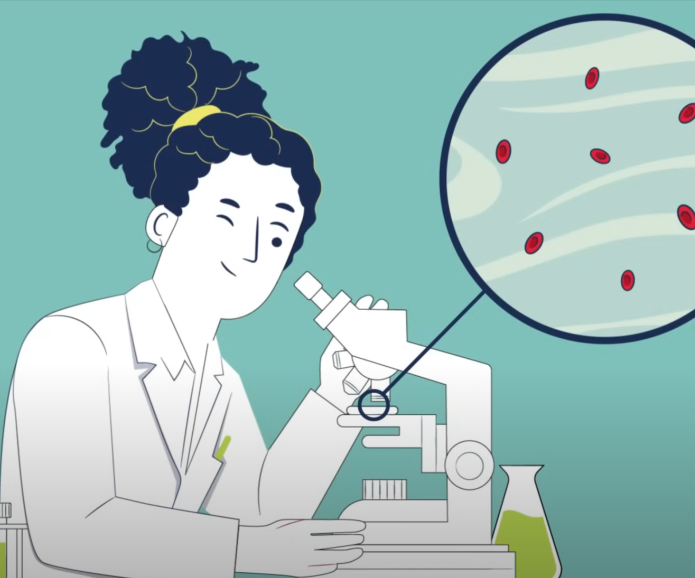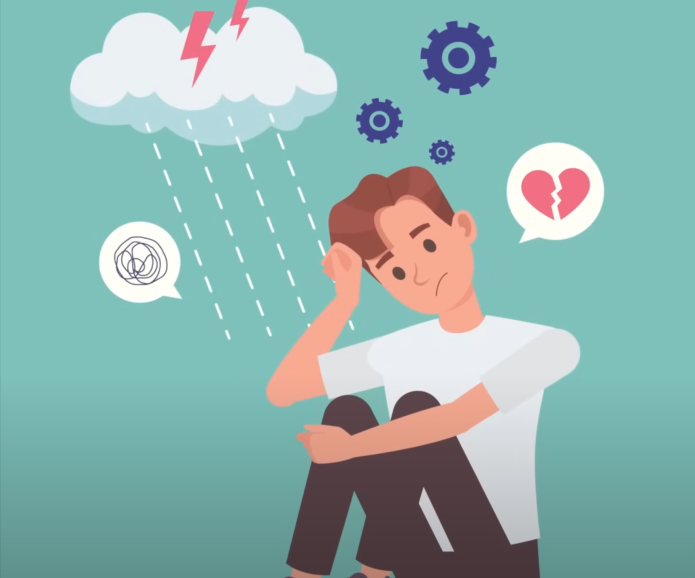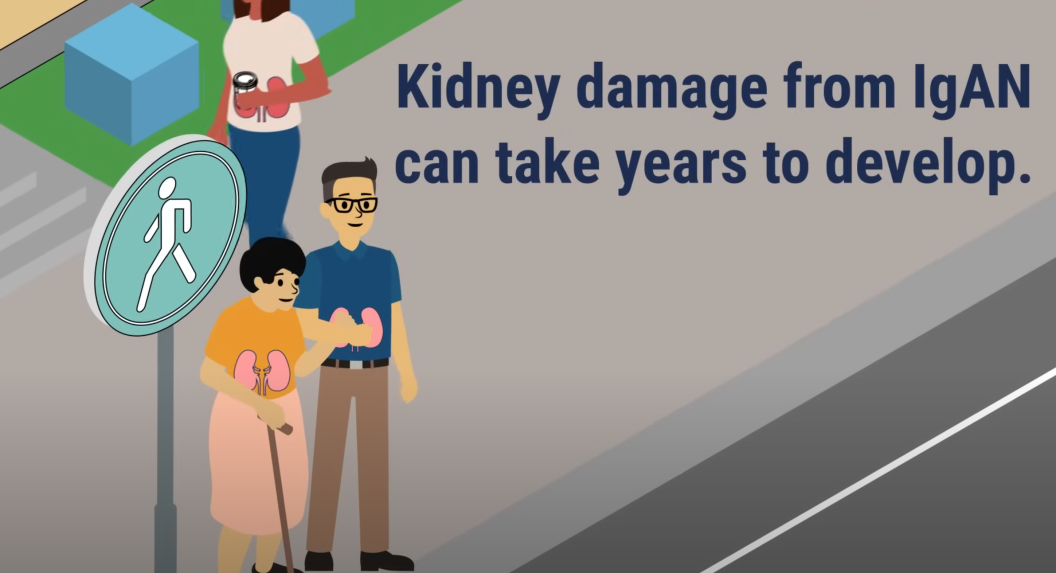



IgA nephropathy (IgAN)
IgA nephropathy (IgAN) is a rare disease that causes kidney damage when your own immune system produces antibodies in your kidneys. This then triggers harmful inflammation in your kidneys. Inflammation is the body's natural response to injury and infection. This process lowers your kidneys' ability to filter waste and fluid from your blood. There is no cure for IgA nephropathy, but treatments can slow the damage to your kidneys.
This education content is supported by Novartis
Jump to
- What is IgA nephropathy or IgAN?
- {wysiwyg_placeholder}
- What causes IgA nephropathy?
- {wysiwyg_placeholder}
- How do doctors treat IgA nephropathy?
- {wysiwyg_placeholder}
- {wysiwyg_placeholder}
- {wysiwyg_placeholder}
- Do I need to make changes to what I eat if I have IgA nephropathy?
- How does IgA nephropathy affect mental health?
- This education content is supported by Novartis
- {wysiwyg_placeholder}
- Tools for managing your IgAN
- Download our IgAN Proteinuria Guide
- {wysiwyg_placeholder}
What is IgA nephropathy or IgAN?
IgA nephropathy (nuh-FROP-uh-thee), or IgAN, is a disease that causes inflammation (swelling) and damage to your kidneys. Inflammation is the body's natural response to injury and infection. In IgA nephropathy, proteins that are made by your immune system (immunoglobulin A or IgA) get into your kidneys. IgA proteins are antibodies that normally protect us from infection. These proteins build up and form clumps inside the filters of the kidneys that clean your blood (glomeruli). Over time, this buildup causes inflammation and damage to the glomeruli and lowers your kidneys' ability to filter waste and fluid from your blood. Kidney damage from IgA nephropathy can be serious and lead to:
- Chronic kidney disease (CKD)
- Kidney failure (also called end-stage renal disease or ESRD and end-stage kidney disease or ESKD)
- Death
It is one of the most common causes of kidney disease, behind high blood pressure and diabetes. IgA nephropathy is also known as Berger's disease.
What are the signs and symptoms of IgA nephropathy?
Kidney damage from IgA nephropathy can take years to develop. Some people with IgA nephropathy do not have any symptoms for 10 years or more, and some people can have IgA nephropathy and not know it. Others can have a more aggressive version that is diagnosed more quickly.
The first signs of IgA nephropathy are usually blood or protein in your urine (pee). You may notice:
- Urine that is pink or the color of tea or cola, especially after you have had a cold, sore throat or respiratory infection
- Blood in your urine that you can see
- Foamy urine
- Have swelling in your hands or feet or around your eyes
Doctors sometimes find signs of IgA nephropathy during a routine urine test, when they see blood or protein in your urine under a microscope.
You may also:
- Feel weak and tired
- Feel like you have a cold or the flu
- Have pain in your lower back or sides
- Have swelling in your hands or feet
- Have high blood pressure

What causes IgA nephropathy?
Doctors do not know exactly what causes IgA nephropathy. It is not clear why some people have it while others do not, but a lot of research is happening to better understand the cause. Currently, it is thought that the body is making too much of an unusual type of antibody, IgA. That abnormal IgA is more likely to clump together with other antibodies and deposit in the kidney. Once in the kidney, it triggers a reaction of the immune system which damages the kidney tissue.
IgA nephropathy is also more common in:
- Men
- People of Asian or European descent
- Native American people of the Zuni and Navajo tribes
IgA nephropathy can be passed down through your family, and doctors think it is genetic. However, most cases happen in people with no family history of the disease. In some people who have other health conditions may have a higher chance of having it, including:
- Celiac disease: An allergy to gluten that tends to run in families (gluten is a protein found in wheat, barley and rye)
- HIV (human immunodeficiency virus) infection
- Cirrhosis: A liver disease in which scar tissue replaces normal liver tissue
How can doctors tell if I have IgA nephropathy?
IgA nephropathy is diagnosed by a series of tests, including blood tests, urine tests, and a kidney biopsy.
Your healthcare provider may also use the International IgAN Prediction Tool (IIgANPT) to look at the risk of IgAN disease progression. This tool can help your doctor predict how long it may take for your kidney function to decline or for you to reach kidney failure. This could help you and your healthcare team better understand if you may need closer monitoring, certain types of treatments, and to help you prepare for dialysis or a kidney transplant. Talk to your doctor about how this tool helps them understand your disease and your prognosis.
Urine testing:
uACR: (albumin-to-creatinine ratio) is a urine test that measures the amount of albumin (a type of protein) in your urine compared to the level of creatine (a waste product). This ratio helps your doctor determine how well your kidneys are working.
The uACR test can detect early-stage kidney damage, especially for people at a higher risk. A higher uACR means more kidney damage and can indicate your risk for a quick progression to kidney failure. For IgAN patients, this is crucial in helping to monitor kidney function and understanding how quickly the disease can progress.
Blood testing:
eGFR (estimated glomerular filtration ratel) is a blood test that shows how well your kidneys are working by measuring the waste and toxins in your blood. It typically uses how much creatinine is in your blood to calculate it. Creatinine is a waste product from your muscles that should be filtered out by your kidneys; if your kidneys are damaged, it can build up in your blood.
Kidney biopsy
A kidney biopsy is a procedure where doctors take a small piece of tissue from your kidneys to look at it under a microscope. This is the only definitive way to diagnose IgA nephropathy. With IgAN, a kidney biopsy will show deposits of IgA in the glomeruli of your kidneys.
You can find out you have IgA nephropathy at any age, but 8 out of 10 (80%) people with IgA nephropathy are diagnosed between ages 16 and 35. IgA nephropathy is rare in children.

How do doctors treat IgA nephropathy?
There is no cure for IgA nephropathy. The goal of treatment is to slow the damage to your kidneys and delay or prevent kidney failure. Your doctor will work with you to make a treatment plan.
Doctors treat IgA nephropathy with medicines that:
- Lower inflammation
- Help control your blood pressure
- Help remove extra fluid from your body
- Lower your cholesterol
Your doctor may also recommend that you:
- Make changes in what you eat to lower the amount of protein, fat, sodium and cholesterol you take in
- Take in more or less fluids through drinks and some foods
- Lose weight
Your doctor will also do regular tests to keep track of your kidney health over time. With these measures, many people will see a reduction in the amount of protein that is in the urine.
Learn more about kidney function tests that your doctor may order such as blood tests, urine tests, kidney ultrasound and kidney biopsy.
There are new treatments recently approved by the FDA to help treat IgA nephropathy. Talk with your doctor about the latest research in IgA nephropathy. You may have options that you did not have before.
Recently FDA-approved treatments
There are 2 new FDA-approved treatments for IgA nephropathy. Both lower the level of protein in urine (proteinuria), and work well in adults who have a high chance of their IgA nephropathy getting worse.
These medications may be prescribed by your doctor. Talk to you doctor and healthcare team to learn more about your options. There are also ongoing clinical trials that are testing how well other treatments work which may be FDA- approved and available for prescription in the future.
What is the treatment for kidney failure from IgA nephropathy?
If you have kidney failure from IgA nephropathy, you will need to go on dialysis or have a kidney transplant. A transplant is not a cure for any type of kidney disease, but is considered a treatment. After a transplant, it is possible the new kidney can eventually become damaged because of IgA nephropathy.
What can I expect while living with IgAN?
Just Diagnosed
You may have been struggling with chronic kidney disease (CKD) for a long time before your IgA nephropathy diagnosis, or you may have discovered your kidney damage and IgA nephropathy at the same time.
In both cases, this diagnosis can be overwhelming. IgA nephropathy is a chronic disease, meaning you will have it for the rest of your life. Over time, the disease can get worse. IgA nephropathy causes kidney failure in about half of all patients within 10 years of diagnosis.
Talk to your healthcare providers early on and often about treatment options, clinical trials, and any new symptoms to help prevent future damage.
IgA Nephropathy Progression
IgA nephropathy is a lifelong, progressive disease, meaning it will gradually worsen over time. For some people, the progression may be slow, and they may never reach kidney failure. However, for others, the disease can progress quickly, leading to kidney failure in just a matter of months. One key warning sign is proteinuria (protein in the urine). The more protein you have in your urine, the higher your risk of quick progression to kidney failure.
A common test to measure proteinuria is the albumin-to-creatinine ratio (uACR). This is a urine test that uses a small amount of urine to compare how much albumin (protein) to creatinine (waste product) is in your urine. This test can indicate your level of kidney damage.
Proteinuria levels: what do they mean?
Having any amount of protein in your urine can be a sign of kidney disease. If you have IgAN, the amount of protein in your urine can indicate how likely you are to progress towards kidney failure.
Talk to your doctor about your most recent uACR test results and what the results may mean for your kidney disease.
uACR Results:
- Normal to mildly increased <30 mg/g or <3mg/mmol
- Moderately increased: 30-299 mg/g or 3-29mg/mmol
- Severely increased: ≥300 mg/g or ≥30 mg/mmol
If you have not had a uACR test before, talk to your doctor about getting one done and incorporating the test into your monitoring strategies.
Since you may not have immediate signs of proteinuria in the early stages, it's important to talk to your healthcare provider about regularly monitoring your urine and blood levels and ways you can slow damage to your kidneys.
If you are close to kidney failure, it's important to have open conversations with your healthcare team about treatment options and what is best for you. Treatments available for kidney failure include dialysis (hemodialysis or peritoneal dialysis) and a kidney transplant.
Proteinuria Symptoms
While there are not always symptoms of proteinuria, the following can indicate high levels of proteinuria:
- Swelling in your face, belly, feet or ankles
- Urinating (peeing) frequently
- Shortness of breath
- Being tired frequently
- Nausea or vomiting
- Lack of hunger
- Puffy eyes
- Foam or bubbles in your urine
It is possible for IgAN to reoccur after a kidney transplant. It often happens many years after a transplant and does not always cause signs of disease. Researchers are not sure how often recurrence of IgAN leads to rejection of a transplanted kidney, but a high level of proteinuria and scarring in the transplanted kidney are both associated with a higher likelihood of rejection.
How can I prevent IgA nephropathy?
Because it is not clear what causes IgA nephropathy, it is not clear how to prevent it. However, research has shown that for people with IgA nephropathy, medicines that help control your blood pressure and prevent protein from being lost through your urine can help slow damage to your kidneys.

Do I need to make changes to what I eat if I have IgA nephropathy?
What you eat and drink is very important when you have kidney disease. There are many things to consider depending on your current level of kidney function, such as:
- How and what you eat
- Different nutrients
- The amount of fluid you consume
A dietitian (an expert on food and nutrition) can help you make a kidney-friendly eating plan that works for you.
Your doctor may also recommend that you:
- Make changes in what you eat to lower the amount of protein, fat, sodium and cholesterol you take in
- Take in more or less fluids through drinks and some foods
- Lose weight

How does IgA nephropathy affect mental health?
Living with IgA nephropathy can affect your mental and emotional health. Depression, anxiety and other mental health issues are common in people with kidney disease. If your kidney damage gets worse, you may feel more stress. For example, if you are on dialysis, stressors may include:
- Cost of dialysis
- Time needed for dialysis
- Feeling like a burden to others
- Changes in your job
- Limits on what you can eat
- Fear of pain
Find healthy ways to cope
It is normal to have stress, anxiety and depression when facing difficult situations. If you notice changes to your mental health, these activities may help you feel better:
- Be active for at least 30 minutes most days of the week. Exercise can lower feelings of depression and anxiety and improve the way you think, learn and remember things.
- Get enough sleep. Aim for 7-8 hours a night and try to go to sleep and wake up at the same time every day. Poor sleep affects mood, energy, attention span and your ability to think clearly.
- Tap into your faith. For some, connecting with religion and spirituality may serve as a valuable way to cope with mental health issues. Your faith community can provide a group of people that you can rely on when you are feeling down.
- Explore your creative side. Pick up an old hobby or try something new such as painting, crafting or sewing. When engaged in something you enjoy, it can lower stress and release feel-good chemicals in your brain.
Talk to a professional
If you want to talk to a professional, ask a member of your treatment team for a referral to a mental health therapist, counselor or social worker.
These professionals are trained to help you:
- Understand and process your emotions
- Improve your coping skills
- Maintain healthy relationships with loved ones
- Navigate everyday life with chronic disease
- Advocate for your needs
Many health insurance providers cover mental health services. Call your health insurance provider to find out what your health insurance plan includes and get a list of in-network mental health providers in your area.
Find a support group
Having a chronic disease like IgA nephropathy can feel isolating. But you are not alone. One of the best ways to cope with a major life change is to connect with people who are going through a similar experience.
Benefits of joining a support group include:
- Being able to talk openly and honestly with people who understand what you are going through
- Learning tips for managing IgA nephropathy from people who have been living with it for longer than you
- Learning more about IgA nephropathy and opportunities for patients, such as clinical trials and new treatments
- Finding new ways to cope
- Feeling empowered and supported by your new community
- Making new friends
Visit the IgA Nephropathy Foundation and National Organization for Rare Disease (NORD) to learn more about support groups and other community-based resources near you.
Learn more about mental health and kidney disease and where to go for support.
Take the IgA nephropathy risk quiz
See if you should get screened for IgA nephropathy by taking the risk quiz! Knowing your risk for IgA Nephropathy can help you catch the disease early if you have it.


Tools for managing your IgAN
The IgAN Foundation has many resources to help you manage your IgAN. From treatments to emotional support, their guides and worksheets can help you control your kidney disease.

Download our IgAN Proteinuria Guide
Download our guide to understand the progression of proteinuria. Learn what your urine albumin-to-creatinine ratio (uACR) means, why tracking protein levels is key to protecting your kidneys, and how to talk with your doctor about slowing kidney damage.

Request our IgAN guide
Request our IgAN Talk To Your Doctor Guide and sign up for our email series for more resources. You can use this guide to prepare for your next doctor's appointment.
Our guide is also available in Mandarin. Click here to download our IgAN guide in simplified Chinese
Enter your information
From the IgA Nephropathy Foundation
The IgA Nephropathy Foundation is a patient-centric organization dedicated to finding a cure for IgA Nephropathy focusing on funding research, empowering patients through advocacy, and build a supportive community. The foundation offers various resources, including education materials, support networks, access to free mental health therapy and information on clinical trials.
Educational content was developed by AKF with the generous support from Novartis



